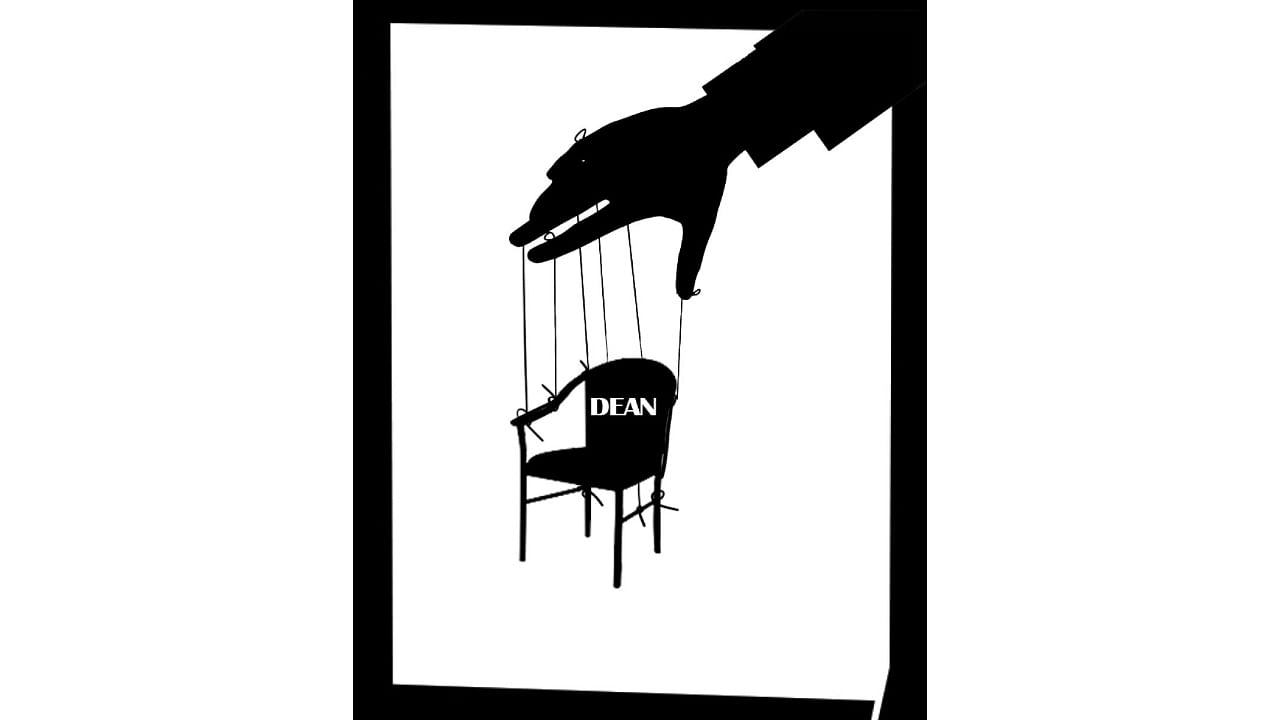
Today, the public university system in our country is facing a two-pronged onslaught: first, government interference in its internal functioning with an aim to make it fall in line or suffer from apathy and neglect; and, second, the onslaught of neoliberal forces in the form of the ascendance of private universities, whose nature and direction look uncertain. The University Grants Commission’s latest proposal inviting foreign universities to freely set up campuses in India is unlikely to help the situation. What has led to this stage, and what is the way forward?
As we witness the decline of the public universities and a simultaneous ascension of private universities, the limitations of the latter make a case for a robust public university system in our country.
The last three decades have seen a steep decline in our public universities. By the beginning of this century, the public university was gripped by noise, falling academic standards, stasis, a breakdown of trust among stakeholders, and a pervasive sense of melancholy. The reasons are varied. With moral degeneration besetting our public life in the eighties, as the commitment to public service and even considerations of what is good and bad, right and wrong gave way to the (mis)use of privileges to safeguard one’s position and to advance in career, a sense of expediency and complacency set in among the faculty and mediocrity came to reign supreme. This was typified by a faculty, who, finding an anchor in the security of a government job, resorted to shrill and loud rhetoric and obstructionism to conceal his incompetence and remain relevant in academia.
Pankaj Chandra in his Building Universities That Matter has insightfully called such a faculty member “a campus broker” who looks for his ilk in the system or seeks to convert colleagues to his ilk.
The following years saw growing government interference in the internal functioning of the public university, which aggravated the situation. The crackdowns on the campuses of Jamia Milia Islamia and Jawaharlal Nehru University (JNU) in the recent past, the questionable role of university administration therein, and the standoff we currently see at Visva Bharati are a pointer to the abyss the public university system seems to have reached in our country.
The turn of this century also saw increased participation by the private sector in higher education. And several universities were founded on the US undergraduate model of liberal education--Ahmedabad University, O P Jindal Global University, Ashoka University, FLAME University, Krea University, and Sai University are the prominent ones. These universities differed from the existing ones, both public and private, in terms of their recruitment, programmes, and support for students. Having failed to stem the rot in our public universities and given up the reform that could have prepared them to face the challenges of the changing times, we started looking at the emerging private universities for quality and excellence. However, the fact remains that while many of our leading public institutions are facing a crisis, none of the private universities have risen to match the standards of once-top public universities.
Riding the wave of philanthropy, we thought we could compete with the best institutions in the world. Alas, the bubble seems to be bursting. The recent developments, thwarting historian Ramachandra Guha from joining Ahmedabad University and P B Mehta’s resignation from Ashoka University, reportedly because his association with the institution was a “political liability,” give ominous signs and hint at the limitations brought to bear on them by the larger socio-political milieu within which they operate.
Corporatisation of higher education is yet another dimension of the situation that needs to be taken note of. It deserves mentioning that some of our public intellectuals and erstwhile academic leaders of some reputed public institutions enthusiastically participated in the establishment and running of these new private universities. Though started with a vision and full of idealism and promise, with the exit of the founding members and the induction of leaders in key administrative and academic positions who have had little or no experience of India’s public institutions, it is likely that the promises of the initial years are consigned to the dustbin and they come to be governed as corporate entities.
On an optimistic note, while we may continue to pin our hopes on the good sense and sagacity of the donors and expect at least some of the private universities to eventually emerge as centres of learning, teaching, and research in the true sense and as important agencies of the public good, their limitations are obvious to a discerning observer of Indian conditions. In the foreseeable future, they are most likely to remain limited in their reach to a privileged few and the upwardly mobile middle classes of our society. However, what is beyond doubt is that private universities cannot replace the public university system in our country.
With the massification of higher education, meagre resources, and high aspirations among the youth, there is no alternative to a robust system of a public university with a commitment to the needy and deserving students from every section and corner of our society.
Can we revive public universities by going back to our old ways, practices, and structures of governance? The answer is no. Reviving public universities calls for a transformation in our work culture and the adoption of new practices and structures of governance to meet the needs of the 21st century.
At a time when “public office” is being “privatised” and democracy in our country is sliding into “elective despotism” (To Kill A Democracy, Debasish Roy Chowdhury and John Keane), building a robust system of public universities has to be a part of the larger project of social transformation by freeing our public spaces from all types of vested interests and seeking accountability from the state to rid our society of the violence, indignities, discrimination, and injustices that mar our collective social existence.
(The writer is adjunct faculty in the Department of Social Sciences at FLAME University, Pune.)